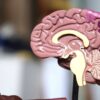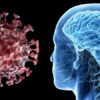A new study conducted at Massachusetts Institute of Technology has demonstrated how microglia contributes to neurodegenerative illnesses such as Alzheimer’s disease.
According to the study, as published in Cell Stem Cell, lipids do not metabolize normally during the expression of the APOE4 gene by microglia. Thus a buildup of lipids results in a disruption of nearby activity associated with neuronal communication.
“Here, we employ CRISPR-edited induced pluripotent stem cells (iPSCs) to dissect the impact of APOE4 in neuron-microglia communication,” the authors described in their journal article.
“Our results reveal that APOE4 induces a lipid-accumulated state that renders microglia weakly responsive to neuronal activity.”
‘These findings suggest that abnormal neuronal network-level disturbances observed in Alzheimer’s disease patients harboring APOE4 may in part be triggered by impairment in lipid homeostasis in non-neuronal cells,” the authors concluded.


